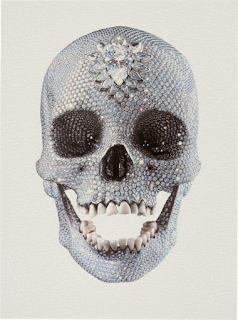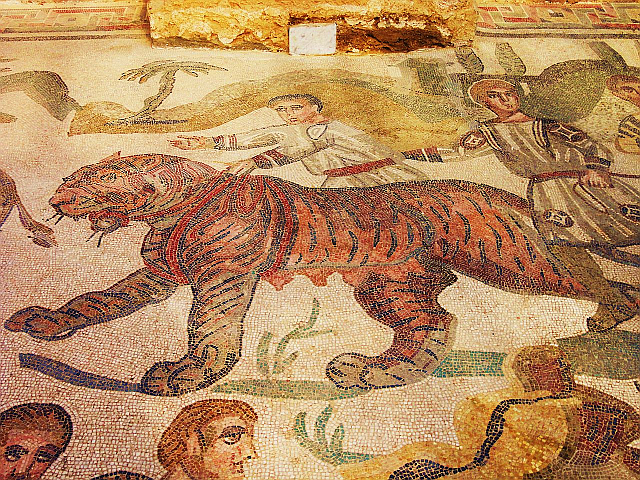If Paradiso 22 is the stark, solitary realm of thunder and sublimity, canto 23 is another realm altogether. It is necessary to appreciate the artistic cogency with which the poet articulates all that is implicated in this move from the staircase of Saturn to the stars.
This begins at 22:100, when the pilgrim, at one sign (cenno) from Beatrice, suddenly accedes to the starry sphere. The use of hysteron proteron underscores the rapidity, and also does away with the tyranny with which time and causality are always linked (first cause, then effect), and seeing is distinct from being. Addressing the reader he says,
tu non avresti in tanto tratto e messo
nel foco il dito, in quant' io vidi 'l segno
che segue il Tauro e fui dentro da esso.
Thou hadst not thrust thy finger in the fireThe simultaneity here signals a different temporal order, as well as a different mode of presence. Note that he sees and is within the sign of the Twins -- the sign (segno) no longer just re-presents the constellation, rather it is it.
And drawn it out again, before I saw
The sign that follows Taurus, and was in it. (22:109-111)
Along with the erasure of temporality comes an almost casual sense of plenitude. No longer is there one star, one planet - there are migliaia - an immeasurable amount.
This is marked poignantly when, at Beatrice's direction, the poet turns back for one final look at where he has come from, taking in the entirety of creation beneath the stars:
I with my sight returned through one and all
The sevenfold spheres, and I beheld this globe
Such that I smiled at its ignoble semblance;
And that opinion I approve as best
Which doth account it least; and he who thinks
Of something else may truly be called just.
I saw the daughter of Latona shining
Without that shadow, which to me was cause
That once I had believed her rare and dense.
The aspect of thy son, Hyperion,
Here I sustained, and saw how move themselves
Around and near him Maia and Dione.
Thence there appeared the temperateness of Jove
'Twixt son and father, and to me was clear
The change that of their whereabout they make;
And all the seven made manifest to me
How great they are, and eke how swift they are,
And how they are in distant habitations.
The threshing-floor (aiuolo) that maketh us so proud,The repeated forms of "appear," "see," "manifest," "all" (tutto), "how great," "how swift," and "all apparent," coupled with the insistence on the genealogy of the gods, parents and children, with the highest three -- Mars, Jupiter, Saturn -- forming a pagan trinity, produces a totality completely in sync with the nature of the sub-starry universe. Planet-gods wander solitary through heavens; they have parents, they have children, they have stories, and all converge at the deepest point, the threshing floor where daughters and sons of gods/God make choices that determine their immortal ends.
To me revolving with the eternal Twins,
Was all apparent made from hill to harbour!
Then to the beauteous eyes mine eyes I turned. (22:133-154)
A single gaze is able to represent this totality only because it is superliminal -- it speaks from the vantage point of the stars. Nature, in which individuals hash out their histories and die, giving rise to succeeding generations, here reaches its boundary. When Dante looks down from the stars, his mind is not overwhelmed by the vastness of Being, or by the turbulence of history, or the multiplicity of orbits and habitations. He is neither awed nor dizzied nor dazzled. His retrospective gaze has the serenity of a being taking it all in, with that smile --
io sorrisi del suo vil sembiante;
I smiled at its ignoble semblance; (22:135)-- a retrospective smile not unlike those on graves.
 |
| Hirst: "For the love of God" |
Dante's Odyssean journey through Nature is ended. The ability to look back and take it all in is the ability of the narrator who has survived -- it's the moment when Odysseus can tell his tale in the court of Alcinous, and Aeneas can represent himself at Dido's palace.
Homer and Virgil's heroes of course had much more to see and do after their autobiographic moments, as does Dante's pilgrim. From this point on, the Christian poet will struggle with how to figurar that which is beyond Nature.

No comments:
Post a Comment